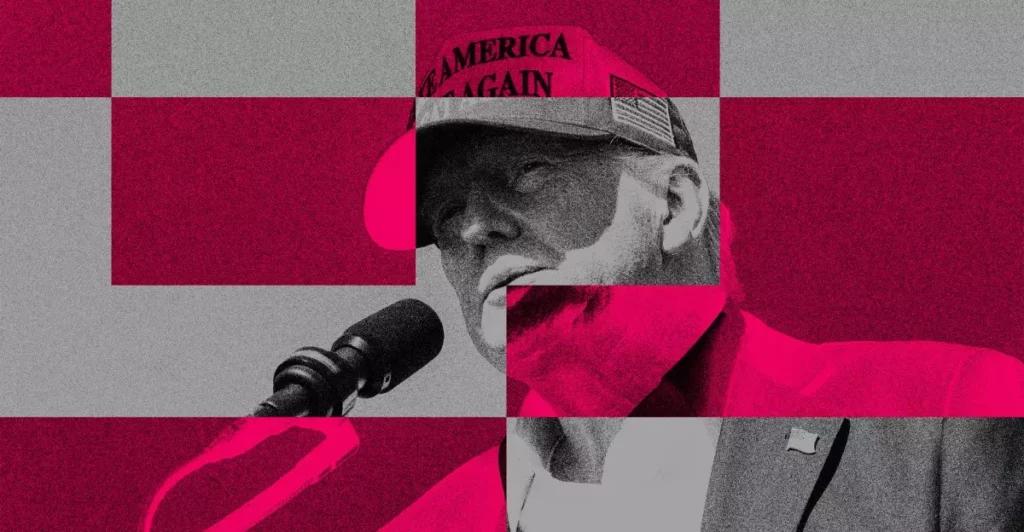The Trump administration’s decision to establish a TikTok presence without a concrete deal with ByteDance exposes a profound lack of foresight and strategic planning. Rather than prioritizing diplomatic negotiations that could legitimize U.S. interests while safeguarding national security, the administration adopted a reckless gamble—leveraging the platform for political messaging without a clear legal framework. This piecemeal approach reveals an overarching failure to understand the implications of digital diplomacy, risking further destabilization of U.S.-China relations. Instead of acting as a responsible global actor seeking pragmatic solutions, the administration opted for performative moves that undermine its credibility in tech policy circles.
Short-Sighted Political Posturing Over Long-Term Security
This episode underscores a troubling tendency among Trump’s team to prioritize headline-grabbing stunts over genuine security concerns. By creating a White House account on TikTok amid ongoing negotiations, the administration appears more interested in fueling political narratives than in addressing core issues like data privacy, espionage, or ownership transparency. Such actions serve only to entrench existing partisan divides, while leaving national security vulnerabilities unaddressed. For a government that claims to protect its citizens, this shortsightedness risks amplifying threats from malicious actors who exploit the chaos for their gain.
Propaganda Over Policy: The Dangers of Political Utilization of Tech Platforms
What stands out most is how both Trump’s previous flirtations with banning the app and current efforts to maintain a foothold reflect a broader pattern of weaponizing technology for political gain. The creation of a White House TikTok account designed to showcase achievements and rally supporters may generate temporary buzz, but it eschews serious policy discourse. This approach transforms a critical digital platform into a propaganda tool, diluting the importance of establishing meaningful regulations and oversight. Relying on impression management rather than substantive policy development weakens the standing of U.S. leadership in the digital age.
Undermining Legal and Diplomatic Norms
The ongoing failure to finalize a deal with ByteDance by the September deadline suggests a profound neglect of legal norms and diplomatic protocol. Instead of engaging in honest negotiations to find a balanced solution—one that considers both American security and economic interests—the Trump administration seems content with symbolic gestures. This cavalier attitude risks setting precedents that erode trust in international negotiations and promotes an environment where legality is secondary to political showmanship. The result is a precarious dance on the edge of legal chaos and diplomatic irrelevance.
Manipulation of Public Opinion for Electoral Gains
Historically, Trump has demonstrated a mastery of shock value and viral content, often exploiting platforms like TikTok to energize his base. The launch of official campaign accounts that outperform those of opponents reveals a strategic understanding of social media’s influence, even if its motives are cynical. This manipulation of digital space for electoral advantage dilutes the quality of political debate and elevates spectacle over policy substance. The risk is a populace increasingly polarized and distracted by content that is more entertainment than engagement, further undermining democratic deliberation.
Inconsistent Policy and Unclear Future Directions
The administration’s inconsistent stance—initially threatening a ban, then softening, then creating a platform—highlights a fundamental incoherence in policy direction. Such inconsistency breeds confusion both within government and among the public, making it difficult to develop effective policy frameworks. This unpredictability hampers efforts to protect data and prevent foreign interference, leaving the U.S. vulnerable to increasing digital espionage and influence operations. In the end, this reflects a leadership crisis that values showmanship over stability and effective governance.
The Trump administration’s engagement with TikTok exemplifies a broader failure: resorting to superficial spectacle rather than well-considered strategy. It exposes an alarming tendency to prioritize short-term political wins over the nation’s digital security and diplomatic integrity. As a center-right liberal in the political spectrum, I believe that responsible governance entails a nuanced approach—one that recognizes the importance of regulating emerging technologies while safeguarding national interests. Trump’s reckless maneuvers undermine these principles, leaving the U.S. more vulnerable, more divided, and less prepared for the realities of the digital future.









Leave a Reply